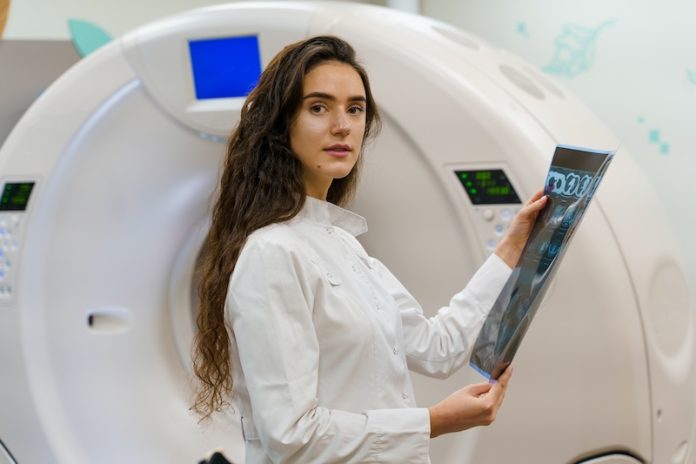
A recent Northwestern Medicine study, published in JAMA, has revealed that CT scans are more effective than genetic testing in predicting the risk of heart disease in middle-aged individuals.
This finding is significant in the realm of preventive medicine and heart health management.
Dr. Sadiya Khan, the study’s lead author and an assistant professor at Northwestern University Feinberg School of Medicine, emphasized the importance of accurately identifying individuals at risk of developing heart disease, which remains the leading cause of death in the U.S.
The study suggests that CT scans, specifically for coronary artery calcium, can more reliably predict this risk compared to genetic assessments.
Traditionally, doctors have relied on conventional risk factors like blood pressure and cholesterol levels to gauge the likelihood of a person developing coronary heart disease.
However, these measures sometimes fail to identify certain individuals who may still be at risk of heart attacks or related problems.
Genetics, particularly polygenic risk scores that compile over 6 million genetic variants linked to heart disease, were thought to offer a breakthrough in personalized medicine for assessing this risk.
The Northwestern study, however, directly compared the effectiveness of genetics and CT scans in risk prediction. The research included data from 3,208 adults from cohort studies in the U.S. and Rotterdam, Netherlands.
The study, which followed participants for up to 17 years, considered various risk factors, including smoking status, cholesterol levels, blood pressure, genetics, and CT scan data.
The results showed that using genetic data did not significantly change a person’s risk category based on conventional factors. In contrast, the CT scan data led to a reclassification of nearly half of the participants into a higher risk category.
This reclassification is crucial because individuals with a risk higher than 7.5% over the next 10 years are typically recommended to start statin therapy to lower their heart disease risk.
Dr. Khan highlighted that CT scan data could help identify individuals who might benefit from medications like statins to reduce their risk of heart disease.
This study’s findings support the use of CT scans as a valuable tool in assessing heart disease risk, particularly in cases where the level of risk is uncertain or falls within the intermediate range.
Other Northwestern researchers involved in the study include Norrina Allen, Dr. Donald M. Lloyd-Jones, and Dr. Philip Greenland.
Their collective work underscores the evolving landscape of heart disease prevention, where advanced imaging techniques like CT scans are gaining prominence over traditional methods and even genetic testing.
If you care about heart health, please read studies about the best time to take vitamins to prevent heart disease, and calcium supplements could harm your heart health.
For more information about health, please see recent studies that blackcurrants can reduce blood sugar after meal and results showing how drinking milk affects risks of heart disease and cancer.
The research findings can be found in JAMA.
Copyright © 2023 Knowridge Science Report. All rights reserved.



